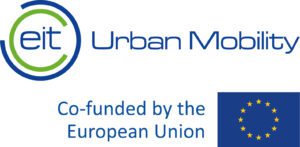Data within waste management
Data and information that an IoT device provides to a company can and should be widely used throughout the business. Depending on the purpose of the project, data from a device can be used in different ways.
Three reasons why and how you can use data in your business or in a pilot project:
Step 1
Current situation analysis and optimization of waste management
Some of our customers are curious to test the technology to gain more knowledge about how it can be used in their operations. These customers are not currently in the process of changing the technology or collecting demand-driven, but they want to collect data and get help to do analyses.
For example, Bintel helps answer the following questions:
What can we learn about ourselves?
Are we as good as we think we are, or maybe even better? Or maybe there is information in our data that we can use to improve our business? Possibly there are smarter ways to work than today and maybe we can get smarter and more efficient.
What can we learn about the customer?
Do you know your customer? Is everyone equal, or do you sort worse if you are a person type A? What is your customer categorization based on? Do holidays, relocations or a pandemic affect how you set your schedule?
With data, you can understand waste streams and customers. Understand how waste generation varies over different seasons and years. How the customer uses different waste services and how to get as much sorted material as possible from the residents.
With the right data, brand new customized services can be tailored to the customer's needs.
What can we learn about technology?
Before you can change the world, you need to understand the conditions and the rules. In the start-up phases of digitalisation projects, it is important to gain a basic understanding of how data is generated and how it is used in an organisation. You can leave the details to Bintel, but we want your entire organisation to start understanding the value of data. What information does the devices provide and why it is valuable?
Step 2
Sustainability and circularity – Increase waste sorting and reduce residual waste
One reason why our customers choose to undergo a pilot project with us is that they want to use the technology and solutions to influence the sorting and thus reduce residual waste.
If sorting at source has been improved in a building, the amount of packaging increases and thus reduces residual waste. Residual waste is the culprit, and should be removed, as it goes to energy recovery and thus breaks the circularity.
How can Bintel increase waste sorting and reduce residual waste?
What factors can our customers achieve by using Bintel's solutions
- Datadriven insights – Gain knowledge about how the recycling actually works, over time, in real estate or a recycling station. Interesting insights are often gained when comparing the degree of sorting in a property with other properties, property owners, or municipalities. How good are we?
- Data-driven actions– Optimize the recycling location, so that the containers for the different fractions match the actual needs of the tenants. Act, through various efforts, on the fractions that deviate from standard behavior. Is to little food waste sorted in your household or compared to other equivalent households? Or is it not known?
- Data-driven development – Has your latest information campaign had any effect? Often hard to know. But with the data, you get an unbiased real-time response to which interventions have an actual effect. And which ones you should stop with. With data, you can influence the residents, to what really produces results – waste prevention.
Step 3
Dynamic resource utilization through demand-driven collection
A third way to use data in waste management is to use it in the operation/collection and use the data to decide whether or not to collect a container. On-demand collection means that containers are emptied when they are full or need to be emptied based on what is the smartest resource utilization in the business.
Resource utilisation is therefore about how a business wants to use and uses its resources. Within waste management resources are, for example, the trucks and the time and competence of the staff. The majority of all waste management is currently static and runs on a fixed schedule with a predetermined interval, often 13, 26, 52, 104 or 156 colelctions a year. The collections are carried out no matter how full the container is or what demand the customer has.
Resource utilisation is basically based on structuring and organizing the collection that is best for the waste company. It determines when and how the customer can get their waste emptied. Since not all customers have the same conditions or demand, this means that the containers are often half full or overfilled.
Bintel's concept and digital solutions are based on:
- We will adapt our service and solutions based on the customer's needs.
- When we carry out waste management, the operations should be equal or more efficient (resource-efficient) than through static resource utilization.
- With the data, we get access to, we plan the emptying needs adapted. This affects the source sorting and sustainability of the entire waste management solution. While delivering a better emptying interval to the customer, we can thus also contribute to something bigger and more important: Reducing our CO2 footprint.
We at Bintel believe that it is high time to take the step and dare to change the traditional waste management for the needs of the planet, the business and your customers. Bintel can help you make better use of your time and resources that are both beneficial to you and the environment.
With that we say at Bintel "No time to waste"

